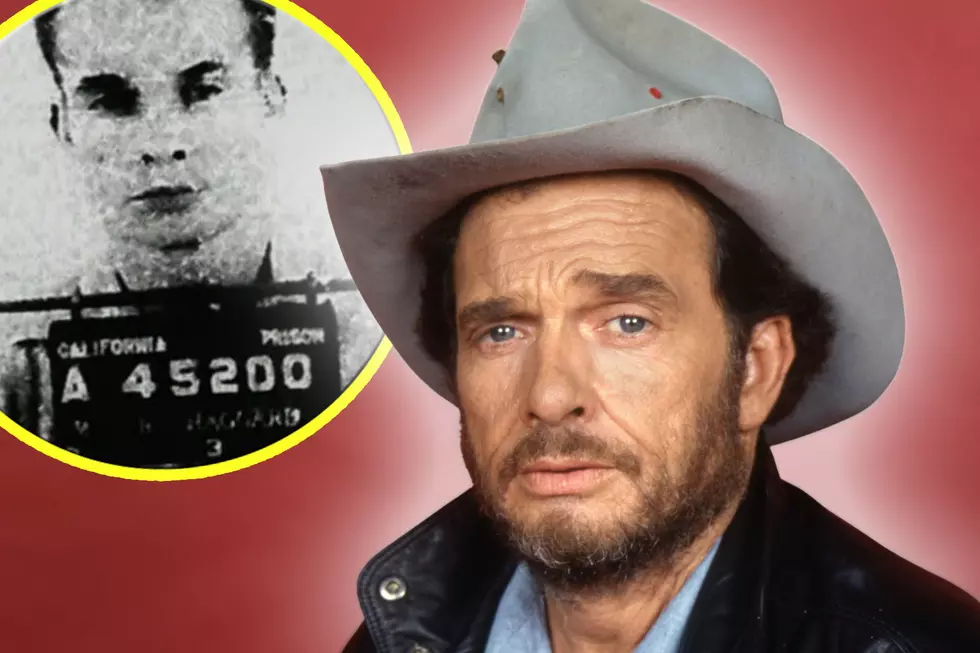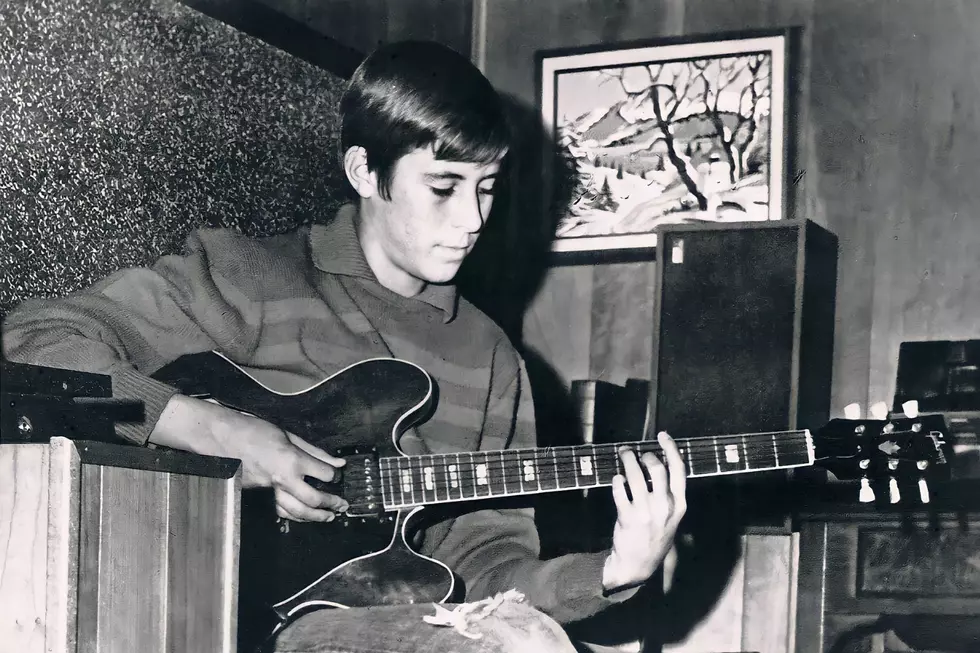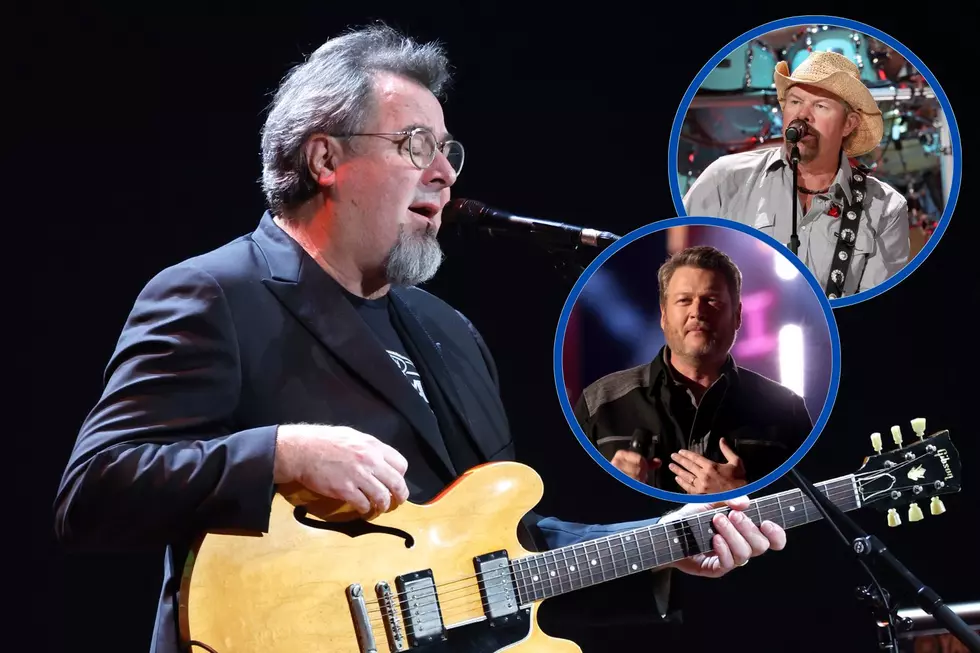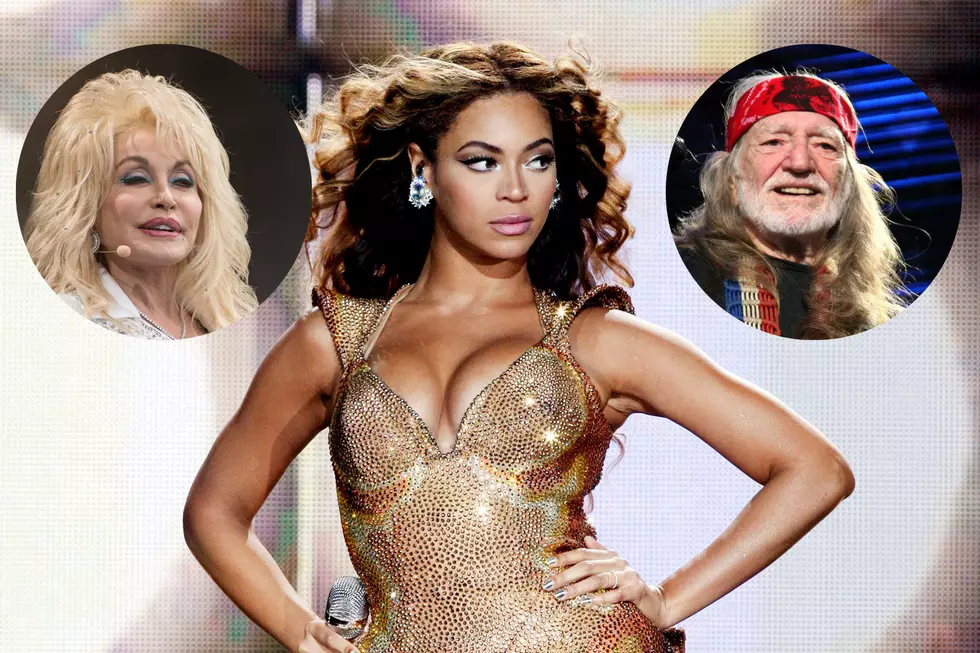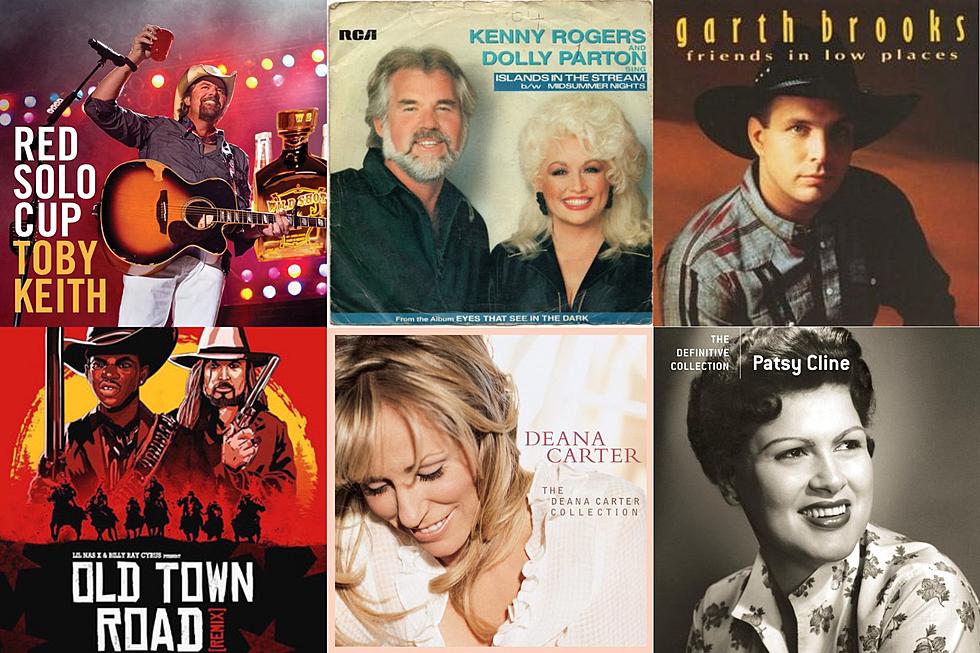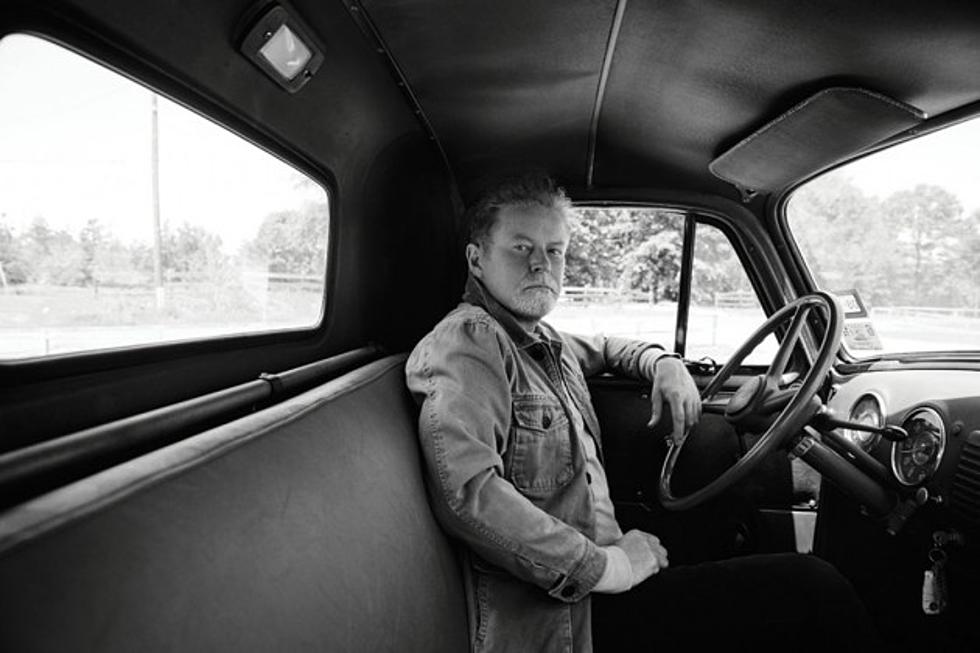
Don Henley Talks Working With Country Legends on New Album, ‘Cass County’
Don Henley returned to his roots for his new solo album, both literally and figuratively.
The legendary singer-songwriter and drummer grew up in Texas, steeped in the influences of country music. He made his way to California and helped to form the Eagles, who went on to revolutionize country-rock with their seamless blend of well-constructed songs, instrumentation and layered vocal harmonies. Henley has also scored massive success as a solo artist with albums including The End of the Innocence and Building the Perfect Beast, but he has mostly focused on the Eagles since the group re-formed in 1994.
Henley is set to release his first solo album in 15 years on Friday (Sept. 25). Cass County is a labor of love for the musician, who drew from his early country influences for a record that blends his strong sense of melody and tightly-constructed storytelling with expansive arrangements that bring the songs perfectly to life. He worked with a Who's Who of the top musicians in Nashville for the project, as well as a roster of all-star guests that includes Merle Haggard, Miranda Lambert, Vince Gill, Ashley Monroe and Dolly Parton.
Taste of Country caught up with Henley recently at a studio in Nashville and found him in a talkative mood. The 68-year-old singer was eager to speak at length about the new album, of which he is obviously very proud, and the six-year creative process that went into it. In the following exclusive interview, Henley shares stories of the small town upbringing that inspired Cass County, as well as highlights from working in the studio with some of the most iconic artists in country music.
What does the title Cass County represent to you?
Well, that's where I'm from. It's where I was born and raised, and to me it represents a lot of things. It represents home, even though I haven't permanently resided there since the late 1960s. I do have a home there. It's still home to me. It's where I spent my formative years. It represent home, it represents friendship, it represents small town life. It represents freedom — I had a lot of freedom growing up. I spent most of my childhood outdoors, just roaming around. In a town like that, you can do that; you can roam around without fear of abduction, or anything bad happening to you. Everybody knows whose kid you are and where you live, and who your parents are. People know a little too much, sometimes. [Laughs].
You can't get away with too much!
Yeah. I rode my bicycle to school, and started driving a car when I was 14 years old, sitting on a cushion so I could see over the dashboard. And the local constable knew I wasn't old enough to drive, but he didn't care. It was a great place to grow up. It's very green and forested, and the terrain is rolling. There's a lot of lakes and creeks, a lot of water, So it represents all those things to me.
Not that many of the songs are autobiographical. "Waiting Tables" is somewhat autobiographical. It mentions a timber town; timber is one of the only surviving industries in my home county. The economy there is pretty bleak. The median family income in my home county is $28,500 a year. It's rough. So that song talks about being a waitress in a dying, fading little town like that.
The other autobiographical song is "Train in the Distance." I actually used to put pennies and nickels on the railroad tracks, about a block from my grandmother's house.
Cass County, and Northeast Texas in general, is present throughout the spirit of this album. A lot of the album is about interior landscapes, instead of exterior ones, but it's also about the circular nature of life. I recently re-read You Can't Go Home Again by Thomas Wolfe, and I'm still trying to figure out my hometown, all these years later. [Laughs].
You can go home again. It's just changed.
You just can't stay. It has changed, because a lot of the people that made it what it was are gone. I realize now that it's not just the landscape, and it's not just the buildings; a lot of it was the people. My 50th high school reunion is coming up, and unfortunately I won't be able to attend, because I'll be in L.A. taping some TV shows. But I'm still in touch with all of the people that I really care about, the people that were in my class. But a lot of the old folks — the ones that were referred to as "the greatest generation," the ones who came home from World War II and really made that town tick — are all gone now.
Another objective of doing this album was just to give a little nod to the folks back home. They're so pleased and they're so excited about the album, because it's called Cass County. They really need something at this point to be proud of.
They've built bypasses around all of these little towns, so you don't drive through them anymore, you just whiz right on by. They're invisible. You know, things change; I know that life is change, and things can't stay the same, but it's sad to see all these little towns fade, and it's not just in my part of the country. It's everywhere. It's a microcosm of America; you've got good, kind-hearted people with loving hearts who would do anything for you.
You worked in Nashville very extensively on this record. How is that a different process than it would be in a different recording center, like L.A. or New York?
It's a little more relaxed. The city is smaller than L.A. First of all, if you wanna record in L.A., you better leave home a couple of hours before you wanna get there [Laughs], because traffic ... the stories about L.A. traffic are many and legendary, but it's true. You just can't get anywhere. And here it's a very relaxed atmosphere.
I know that life is change, and things can't stay the same, but it's sad to see all these little towns fade.
I have a lot of dear friends in L.A. who are great musicians, and some of them performed on this album. We did some of this album also in Dallas, in my little studio there and another studio there, and I've got great musician friends in Dallas as well. Two of them are in my band. But the bulk of it was done here in Nashville, and I made some new acquaintances with these musicians.
So the experience here was a really good one for me, and of course there's the kind of food that I grew up on. Food at a recording session is a big deal, because it's when you get to take a break. You get a little reward for your hard work. So the barbecue, the fried stuff ... [Laughs]. All the heart attack food. You've got the same stuff here that we have in Texas, so that makes me comfortable as well.
You have a balance of tracks on here that are older, classic tracks from other writers, as well as those that you wrote. How did you strike that balance?
Sometimes I like to do a cover tune just to get warmed up when I start an album, and when I'm starting the writing process, I'll find a couple of older tunes, cover tunes that have the flavor of the direction that I'd like to go in. I think a couple of the first things we recorded were "Too Far Gone," the beautiful Billy Sherrill song ... I think that was one of the first things we did in Dallas, and I think we might have done Tift Merritt's song, "Bramble Rose." I think we might have started recording that in Dallas. And that sort of sets the mood for where I'm going. We interspersed these cover tunes on the album, just to give a nod to the past.
When you got into the rest of the album, how did that inform the way you wrote your songs? They fit together pretty seamlessly.
Some of my songs that I wrote were informed by those cover songs, and some of them weren't. Some of my songs were informed just by thinking of a particular artist and the music of that artist. Merle Haggard, for example. I love Merle Haggard's music, and I'm a fan of his early stuff, but my biggest love is for the stuff that he did, I believe it was in the 1980s on an album called The Way I Am. That was the title song, and then there was another song on there called "Life's Just Not the Way It Used to Be," and I must have listened to that song two or three hundred times without stopping, because I just thought it was so brilliant, and the sound of his voice was so resonant.
I think she is one of the last really authentic country music singers that we have today.
So when we sat down to write "The Cost of Living," I had Merle Haggard in mind. I could hear his voice in my head, and I wrote accordingly. My great hope was that he would come and sing it with me, and sure enough, he did, and it's the perfect song for him. He even said, when he heard the guitar solo he said, "You know, that sounds like something I'd do." I just looked at [co-producer] Stan [Lynch] and grinned, and went, "Yup. That's 'cause we wrote it with you in mind."
Tell us about working with Vince Gill.
Another musical hero of mine was Buck Owens. I loved his music, and I loved him, and he's associated with Bakersfield, Calif., but he was actually born in a town called Sherman, Texas. So when I wrote that song on the album called "No, Thank You," I had Buck Owens in mind. I thought, 'Who would be great to sing and play guitar on this?' And so I called up my friend Vince Gill, and I said, "Vince, I got a song here that's kind of a tribute to Buck Owens, and I need somebody to sing the high harmony part." And he said, "Well, you've come to the right place, because when I was growing up, Don Rich was my hero. I always wanted to be Don Rich." I said, "Well, get on down here to the studio, then, and bring your guitar with you." So he came down, he played rhythm guitar on that track, and then he sang that part perfectly, put all the little vocal inflections — you can hear the bent notes and stuff, just like Don Rich would have done it. I was so tickled and so pleased with that.
We wanted to ask you about "When I Stop Dreaming" and working with Dolly Parton. She did a two-night stand at the Ryman recently, and her voice sounded unbelievable. That quality comes across very well on this recording.
That was one of the high points of working on this album, is working with her. I'd only met her once before, very briefly, and we got in touch with her because I knew that she was the only one that could make this song work with me. And to my great pleasure and joy, she said, "Yeah, I'll do it, but you'll have to come to Nashville." I said, "Well, I'm already in Nashville." [Laughs]. So we settled on a date, and she came down to the studio dressed to the nines, looking great. This was three or four years ago now.
She came in, and she listened to the song for a minute, and she said, "I know this song." I said, "I figured you did," and she said, "Me and Porter [Wagoner] used to do this song. I know it well." So she went out to the microphone, she sang it a couple of times, and she came back into the control room, and she said, "You know, the key is a little high for me." I said, "I'm sorry, that's the key we've got it recorded in," and she goes, "Well, then I guess I'll just have to rare back and get it." [Laughs]. And she did, about two takes later.
I love her voice up in that register, where she has to strain a little bit and it gets that little hoarseness in it. It's really sexy. [Laughs]. It's really hot. And she just killed it. And then she was gone. Me and my production team just stood there in silence for a while, saying, "What just happened here?" It's like somebody came in and sprinkled pixie dust in the studio, and then left.
All kidding aside, I think she's a national treasure. I think she is one of the last really authentic country music singers that we have today. There is so much in that voice. She's a petite little person, but when she opens her mouth to sing and that voice comes out, you hear her region of America, and you hear the suffering and the hardship, and you also hear the love and the compassion. There are so many colors and textures and meanings encompassed in that voice. It's just all there.
We recently recorded a video for that same song in Los Angeles, and she was having some medical problems, and she had been in the hospital. I think she's fine now. Even if she's not fine, it's not gonna stop her! [Laughs]. It's not gonna slow her down. She got up out of her hospital bed and came down to the video shoot. She said, "I'm gonna do this, and I'm gonna stay here until it's done." I said, "Are you sure? We can postpone it and do it some other time." She said, "No, we're gonna do it today, and we're gonna do it 'til it's done."
And by George, she did it, and she was a complete pro. Never complained. When she was done, she graciously went around and thanked every member of the crew, and left. I understand why, now, that she is so beloved all over the world, because she's the real deal, and she's humble about it, and she's got the talent. I'm just honored that she's on this record.
More From Taste of Country
